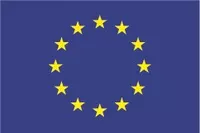FEGEMI Project: Identifying novel injury risk factors in women’s soccer and educating grassroots soccer clubs on how to effectively manage them

Soccer is an effective way to increase physical activity, thus helping to combat obesity and cardiovascular disease. The popularity of women’s soccer in Europe has increased markedly in recent years, which has helped increase participation at grassroots level. However, soccer is associated with various injuries that can lead to non-participation in sport and increased risk of sedentary lifestyle-associated diseases. Limited information exists on injury risk in female soccer players, particularly young players. The identification of novel female-specific injury risk factors would increase our understanding of why injury risk appears to be higher in female compared to male athletes. This knowledge would enable players/practitioners to individualise exercise-training to optimize performance, while simultaneously reducing injury risk.
What is the aim of FEGEMI?
The aims of this ‘Female soccer players regarding Genetics, Menstrual Cycle and Injury risk (FEGEMI)’ project are to investigate novel injury risk factors in female soccer players, and to educate athletes and coaches (at elite and grassroots level) in effective management of those risks. In doing so, another aim is to protect athletes, especially the youngest, from health and safety hazards. The FEGEMI project comprises a powerful interdisciplinary collaboration between the Liverpool John Moores University (UK; Dr Robert M Erskine), St Mary’s University, Twickenham (UK; Dr Charles Pedlar and Dr Georgie Bruinvels), the Universidad del País Vasco (Spain; Dr Susana M. Gil), Liverpool FC Women (UK; David Robshaw), Liverpool Feds Women's Football Club (UK; Abigail Pope) and the Technical University of Munich (Germany; Dr Philipp Baumert) with further associated partners, including as Athletic Club Bilbao (Spain; Dr Jon Larruskain Zabala) and Everton Ladies FC (UK; Jack Clover). This consortium consists of world-leading experts in soccer-related injuries, the impact of maturation on youth soccer performance and injury risk, the influence of the menstrual cycle on exercise physiology and performance, and exercise genomics.
In five work packages (WPs), the project will investigate the impact of the menstrual cycle (WP1), genetic variation (WP2), maturation (WP3), and strength training (WP4) on injury risk in female soccer players. The results will inform workshops designed to educate coaches, athletes and other stakeholders of women’s grassroots and elite soccer clubs on female-specific injury risk factors and how they can be effectively managed (WP5). These workshops will become incorporated into national soccer association guidelines, thus having a positive impact on the profile of women’s soccer, as well as EU health care systems.
The successful research proposal was written by Dr Philipp Baumert and Dr Rob Erskine, who were kindly supported by Antonkin Mikhael of the the Bavarian Research Alliance (BayFor). The project is funded by the Erasmus+ Programme of the European Union (Small Collaborative Partnerships scheme), for whose support we gratefully acknowledge.
What are the results of the present study?
In the realm of sports science, the unique aspects of female athletes have long awaited deeper exploration. Recognizing this gap, our research embarked on an ambitious journey to uncover insights into the genetic, physiological, and environmental factors that influence injury risks and performance in female soccer players. Our project, spanning multiple work packages (WPs), aimed to shed light on under-researched areas, leveraging cutting-edge methodologies and fostering international collaborations. This project was successfully completed 31st December 2023.
Our focus extended across genetic studies, the impact of menstrual cycles on injury risks, the influence of maturity on injury incidence, injury prevention practices, and rehabilitation strategies, culminating in comprehensive dissemination efforts to share our findings with the broader sports community. Each WP was designed to not only answer pressing questions but also to challenge prevailing norms and inspire a new wave of research dedicated to enhancing the health, performance, and well-being of female athletes.
This commitment led us to remarkable discoveries and invaluable insights, setting the stage for a more inclusive and informed approach to sports science. Below, we present a summary of our key findings, hoping to illuminate the complexities of female sports participation and open the door to innovative solutions for athlete care and performance enhancement.
WP1: Exploring Genetics in Female Soccer Players
We embarked on a groundbreaking study about 150 female soccer players from top leagues and academies in England and Spain. For the first time, we looked into how genetics might influence injury risks in these female athletes, a topic not widely discussed before. We identified 25 genetic markers potentially associated with soccer-related injuries through genome-wide association studies (GWAS).
WP2: Menstrual Cycles and Injury Risks
In a pioneering study, about 180 female soccer players tracked their menstrual cycles using a mobile app. We found that injuries tended to occur more frequently during certain phases of the menstrual cycle, which could be related to changes in hormone levels affecting muscle and ligament strength. This insight is crucial for understanding how menstrual cycles might impact injury risks and could lead to better injury prevention strategies.
WP3: Maturity and Injuries in Young Players
Our research also delved into how maturity affects injury rates among young female soccer players. We found that players who are further along in their physical development are more likely to experience injuries, especially non-contact ones. This suggests that the physical changes during puberty, like increased speed and strength, might increase injury risks, highlighting the need for tailored injury prevention strategies for these young athletes.
WP4: Injury Prevention and Rehabilitation Insights
We surveyed coaches to understand how injuries are prevented and managed. Interestingly, while strength training is known to reduce injury risks, it is not always a focus in training programs. Rehabilitation processes vary widely, and there seems to be room for improvement in how young female players are prepared to avoid injuries. Our findings point to the importance of adopting effective injury prevention and rehabilitation practices tailored to female athletes.
WP5: Sharing Knowledge and Building Awareness
Through workshops and conferences with partners like the Bavarian Football Association (BFV, Germany), Athletic Club (Bilbao, Spain) and Liverpool Feds Women's Football Club (UK), the FEGEMI project reached over 220 participants, sparking valuable discussions on sex-specific issues in sports. The positive feedback from these events shows a strong interest and need for continued education in this area, underscoring the impact of our work in promoting a more inclusive and informed sports community.

![[Translate to en:] Copyright EU (2021)](/fileadmin/_processed_/3/b/csm_2021_eu_erasmus_12a7c8ec59.webp)